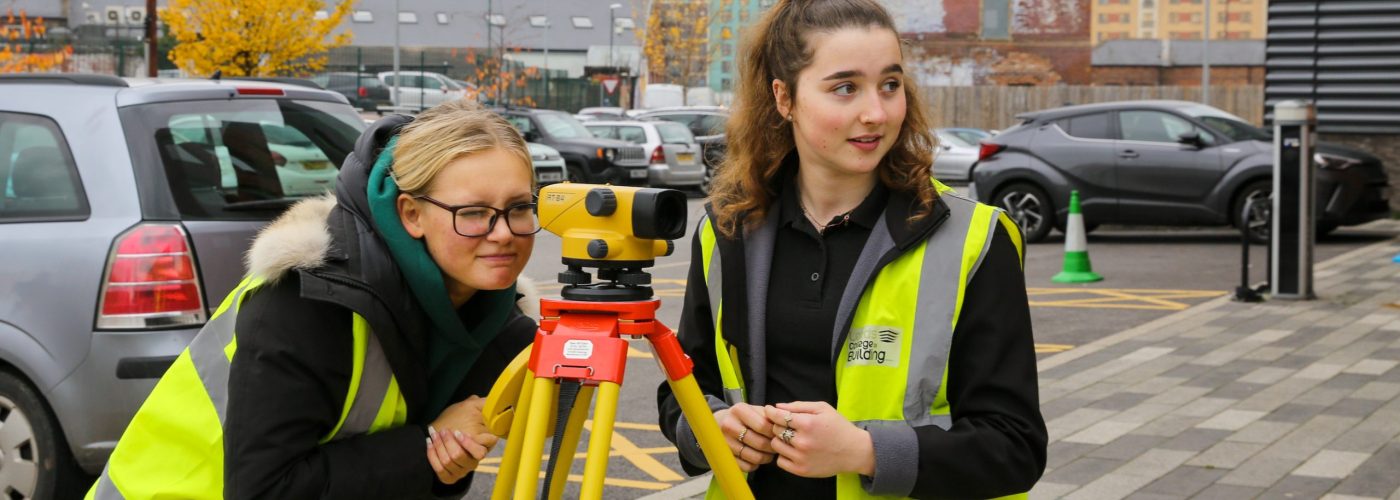Leeds College of Building is launching a unique ‘Methods of Land & Civil Surveying’ course to help boost careers in the construction industry and in response to growing sector demands. Commencing in January 2022, the new surveying programme was created by a specialist team at the College in conjunction with the national awarding body, Pearson.
Students will gain a BTEC certificate for surveying practice units (Levels 4 and 5) and a certificate of achievement awarded by the College.
The programme is ideally suited to anyone already working in a technical role or who has a requirement to carry out surveying duties but no formal training. It is also a suitable entry point for those seeking a career change, engineering apprentices and technical assistants, or school leavers with a strong interest in site surveying or engineering careers.
“This is an exciting new area for the College. Over the years, we have noticed a real need for a formal qualification for those who already carry out surveying or technical roles but who have ‘learnt on the job.’ Many of the students I see fit in this category, and so their only option is usually an HNC/HND qualification route. Instead, the content of this programme is based on two BTEC Level 4 and 5 surveying units, giving them an alternative learning route,” said David Riby, Lecturer in Surveying at Leeds College of Building.
Applications are now open for the Methods of Land & Civil Surveying course at Leeds College of Building. Students will attend for one day per week for a total of 20 weeks, and ideally applicants should possess a minimum GCSE grade C in mathematics and English.
“The course will begin with an introduction to the field of surveying and the service it provides throughout the construction life cycle. Surveying requires confident use of equipment, and so the course delivery is focused on practical surveying activity and instrument training. Students will be introduced to industry-standard software packages and trained on specific aspects of workflow – introduction to AutoCad, GNSS processing and transformations, and point cloud registration and uses of data.
“Surveyors work in technologically advanced, specialist roles, playing a vital part in a range of civil engineering and construction projects. We’re really excited to offer this much-needed qualification to formalise practical experience and enthusiasm, and help boost the careers of more sought-after construction specialists,” David added.





